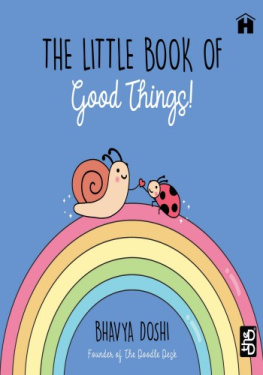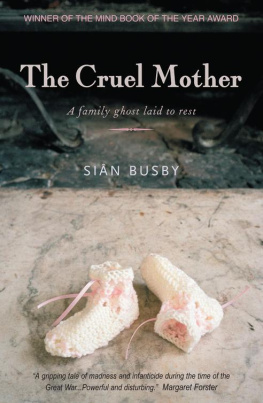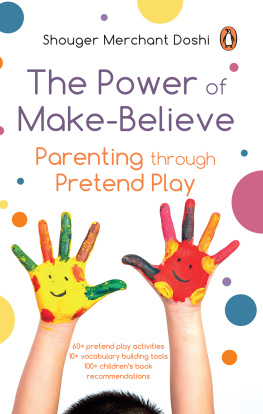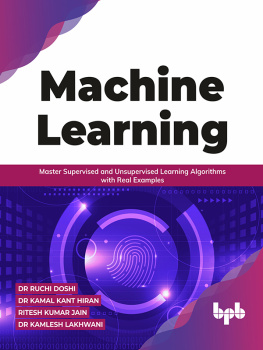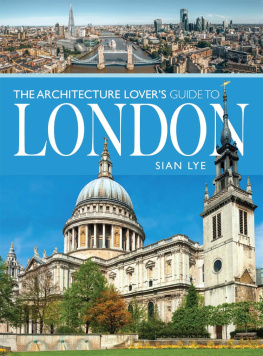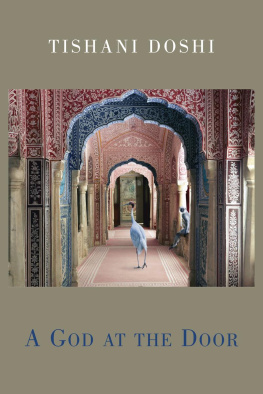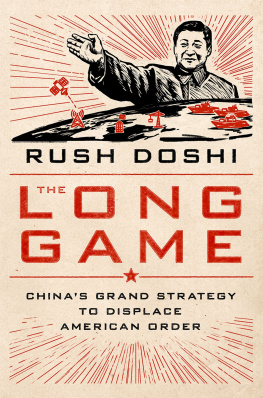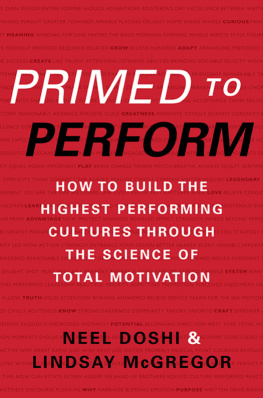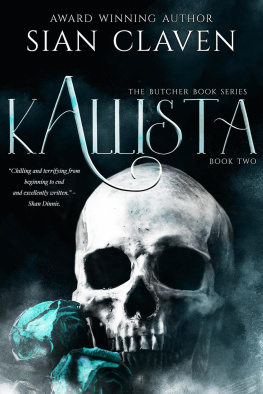In the many years it took to write this book there have been an inordinate number of people who kept me afloat emotionally and economically. These, Id like to thank: my entire family in India and abroad, who made me understand how love, having no geography, knows no boundaries; my friends who opened their hearts, homes and kitchens to me (you know who you are); Ameet Gheewala and David Miller, my first readers, who convinced me there was a story to be told somewhere in the morass of my first draft; my stellar team of editors Gillian Stern, Victoria Millar and Audrey Cotterell, who helped shape and reshape my words when I could no longer bear to look at them; everyone at Bloomsbury, but in particular, Alexandra Pringle, who gently reminded me of the value of slowness, and who believes, like me, that breakfast is the most important meal of the day.
I must also thank Beatrice von Rezzori for a stay at the Santa Maddalena Foundation where I experienced the rare joy of two back-to-back 5,000-word days, and DW Gibson at the Ledig House International Writers Residency for providing me with a room of my own when I most needed one, and the Arts Council England for a generous grant.
Finally, thanks are due to those constant guides who have lent their philosophy, poetry and wisdom to many of the chapter headings and characters in this book: Arthur Rimbaud, Friedrich Nietzsche, J Krishnamurti, Epicurus, Bob Dylan, Dinah Washington, Leonard Cohen, The Beatles, Chandralekha, Gautama Buddha, Mahavir Swami, Harry Belafonte, Khalil Gibran, Rainer Maria Rilke, Dylan Thomas, Jalaluddin Rumi, Goethe, W. H. Auden, Li Po, Albert Camus and Bhavabuti.
Tishani Doshi is a poet and dancer based in Madras, India. Her first collection of poetry, Countries of the Body , won the Forward Poetry Prize for best first collection in 2006. The Pleasure Seekers is her first novel.
Countries of the Body
In the early hours of 20 August 1968, the morning of his sons departure, Prem Kumar Patel succumbed to a luxury he had never, in all his forty-seven years of living, experienced before: he had a dream. It was a long, terrible dream that seemed to take him back to the coils of his mothers womb and hurl him to the end of his life, to a valley submerged in ice. In this dream Prem Kumar was climbing mountains, trying to find his wife and four children. They were lost to him in a strange kingdom where men carried the ghosts of ancestors on their backs and women hid in trees, throwing poison-tipped arrows. Prem Kumar, standing in front of a great wooden doorway, could hear his children screaming. Babo, especially; his eldest, who was cold and wanted extra blankets to sleep, who wasnt used to this bite in the air that was making him turn from a dark shade of walnut to a pasty pistachio. Babo kept calling out to Prem Kumar, Why did you send me here? Why did you send me away? And the other children Meenal, Dolly and Chotu, cried in chorus after him, Why did you send him away? Why did you send our brother away?
All morning, while on the other side of the world Soviet tanks invaded the Czechoslovak Socialist Republic, Prem Kumar Patel lay corpse-still on his back in Madras, South India, watching as his entire life passed before him in a series of silvered, fleeting scenes. He saw his white-haired mother on the front steps of her house in Ganga Bazaar, peeling mangoes for grandchildren that hadnt been born yet. He saw jackals roaming the rubble-strewn streets of a city laid to waste. He saw burnings and soarings, a celestial aeroplane descending from the sky. He saw things that couldnt possibly have happened but bore a resemblance to reality that frightened him so much he had to turn to his wife lying beside him and suck on her breasts of wondrous light. He wanted to ask what these portents meant, but Trishala, slapping her husbands mouth irritably away, wanted nothing to do with it. Get off, get off, she said. Whats the matter with you? Bothering me so early in the morning. And she pulled the sheets from him, wrapping them around the large mass of her body, preferring to stay cocooned in a dreamland of her own making.
When Prem Kumar finally woke to the event of Babos leaving, it was with dark circles under his eyes and the wide expanse of his nose rutted with a rash of mosquito bites. From the distance, he could hear his neighbour Darayus Mazdas daily morning balcony diatribe: Oh! They are breaking me into pieces. My family is breaking me into pieces. They want to send me to the Towers of Silence before my time. Wont someone save me from their wickedness ... And on and on and on, till Prem Kumar, for the first time in their neighbourly association, wanted to walk over and reassure his Parsi kinsman in suffering that no one was trying to do away with him; that in fact, it was he, Prem Kumar, who was the target of a far greater suffering.
Prem Kumar was not a sentimental man, but he was religious, and he believed in retribution. For him, this event of Babos departure was much more than just an investment in the Patel family future. It was about his personal dharma, his responsibility. Babo, who had graduated with honours in chemistry from Jain College, was going to be the first member of their community to further his education by studying abroad. Babo, at the breathtaking age of twenty-one, was also going to be the first person in their immediate family to fly on a plane all the way to London.
At the beginning of the year, Prem Kumar had written to the offices of Joseph Friedman & Sons in London, from whom he imported coloured cement and raw materials, asking if his son, who was going to be taking evening classes at the City & Guild Borough Polytechnic, could get some practical training under their auspices during the day. Fred Hallworth, who was the man in charge of exports, had written back saying that they would be delighted to have young Dharmesh Patel working at their offices in Wandsworth, that they could offer him a weekly salary of 10 15s and would furthermore be able to give him Wednesdays off so he could finish his course at the Polytechnic sooner.
These provisions are more than adequate , Prem Kumar replied, And I can only hope that with this new venture, our partnership will grow from strength to strength . A month later, a letter arrived from the Chairmans office saying that a work permit was being organized for Babo, and that if anything else needed to be arranged, the company would be more than happy to help.
All this was cause for a great swelling in Prem Kumars chest. Ever since the Indian government had banned imports on finished products in an effort to encourage home industry, Prem Kumar had been dreaming of opening his own specialized paint factory: Patel & Sons, where Babo, with his foreign-acquired knowledge, and Chotu, under his brothers guidance, could steer the Patel family towards a stable, lucrative future. Prem Kumar had already raced ahead in time. He could see it now: the labels on the paint cans, the logo, the motto, the workers scurrying in and out noiselessly like ants, filing cabinets filled with account books in his careful, crested handwriting, showing rising profits year after year.
Prem Kumar indulged in this dreaming even as he sat solemnly beneath the sign that he had lovingly tacked above his current desk in his early idealistic years:
PLEASE TALK OF BUSINESS,
FINISH YOUR BUSINESS,
AND LEAVE THE MAN TO ATTEND TO HIS BUSINESS.
Only later, much later, on the day of the dreaded telegram, nine months after Babo left Madras on that nearly rainy day in August 1968, would Prem Kumar begin to understand the dangerous implications of his idle daydreaming. Hed realize that he was being punished for his own duplicity: for dreaming of the future when he should have been attending to the present.
On the morning of Babos departure, when Prem Kumar hauled his struggling body out on to the veranda to join the rest of his family, he kept quiet about his dream. He didnt tell Trishala about it not in the months of silence during her illness, not even when she lay delirious on her deathbed, demanding to know the ways in which hed been unfaithful to her. Because Prem Kumar didnt believe in superstitions or spiritly visitations. After Trishala died, of course, he found he couldnt sleep at nights; he was restless, doomed to listen to religious songs blaring into his ears from his Walkman because he missed his wifes extravagant presence beside him, and because, after his first and only dream, he dreaded the consequences of another.
Next page

